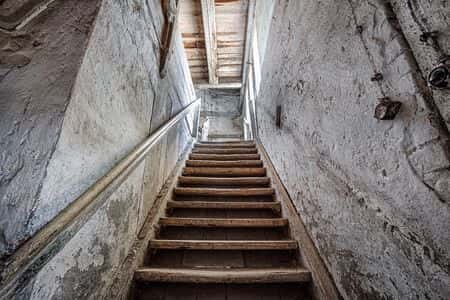This case involves a guest in a house who slipped and fell while going down a stairway. The guest was staying at the home of her daughter and son-in-law. The daughter and son-in-law had rented the house from a landlord. When the guest went to descend the stairs, she fell. The guest felt her foot give way under her and had a sensation of the steps going out from under her. The step that the guest fell on had a cracked nosing. There was insufficient lighting in the stairwell and the guest was not familiar with the stairway in the house. The landlord had inspected the house before the daughter and son-in-law moved in and had noticed that the stairs were showing wear. The guest sued the landlord for negligence after she suffered various injuries from the fall.
Question(s) For Expert Witness
1. Can a guest in a rented house sue a landlord for negligence if they slip and fall on a staircase and the landlord knew the stairs were worn but did not warn the guest about this?
Expert Witness Response
Usually, a social guest in a rented home must be given notice by the landlord about dangerous conditions that exist on the property. This is because a social guest is closely identified with a tenant and usually has many of the same rights as a tenant. A social guest may usually sue a landlord for injuries they suffer as the result of a dangerous condition on a property that the landlord knew about but did not warn them about. If a landlord fails to reveal a dangerous condition that poses an unreasonable risk of harm to a social guest they may be liable for negligence if: (1) the social guest does not know about the dangerous condition; and (2) the landlord knows about the dangerous condition and realizes or should realize the risk involved and can expect that the guest will not discover the dangerous condition. Since the landlord, in this case, knew that the stairs were worn and knew that this might be dangerous for the tenant and their guests, they were probably negligent in failing to warn the tenant and their guest about the cracking noise coming from the stairs. Since the landlord knew that the house was used as a single-family dwelling and could have anticipated that the stairs would be used by social guests, they were probably negligent in not giving the tenant and their guest notice of the dangerous condition of the stairs.
About the author
Michael Talve, CEO
Michael Talve stands at the forefront of legal innovation as the CEO and Managing Director of Expert Institute. Under his leadership, the Expert Institute has established itself as a vital player in the legal technology arena, revolutionizing how lawyers connect with world-class experts and access advanced legal technology. Michael's role involves not only steering the company's strategic direction but also ensuring the delivery of unparalleled intelligence and cutting-edge solutions to legal professionals. His work at Expert Institute has been instrumental in enhancing the capabilities of attorneys in case preparation and execution, making a significant impact on the legal industry's approach to expert consultation and technological integration. Michael's vision and execution have positioned the Expert Institute as a key facilitator in the intersection of law and technology.



